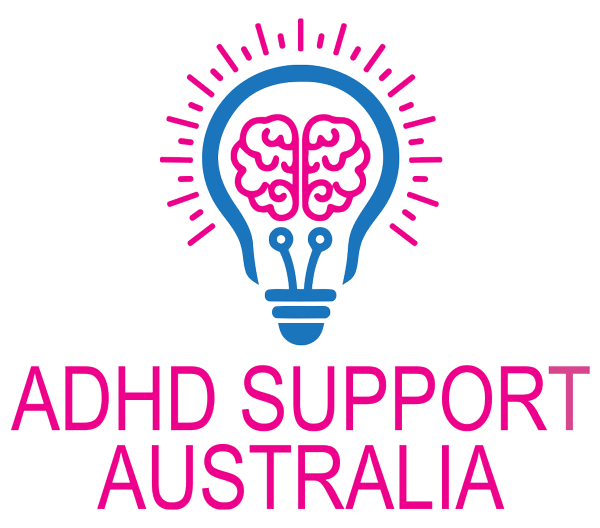
The Hidden Dangers of Screen Time: Safeguarding Neurodivergent Kids and Teens
In today’s digital world, screens are everywhere, permeating nearly every aspect of our children’s lives. From social media scrolling to endless gaming sessions, the digital landscape has become the primary playground for our children and teens. Yet, growing evidence highlights the significant harm excessive screen time can have, especially for our neurodivergent children.
The Research is Clear: Screens are Reshaping Our Kids’ Brains
Recent studies show that excessive screen use negatively impacts mental health, attention spans and emotional well-being, with particularly acute effects observed in neurodivergent children, including those with ADHD and Autism. Dr Jean Twenge, renowned psychologist and author of iGen, found that high levels of screen time correlate strongly with increased anxiety, depression and decreased sleep quality in children and adolescents (Twenge, 2017). Our neurodivergent children, who often already face challenges in emotional regulation and social interactions, may find these negative impacts magnified.
Jonathan Haidt, social psychologist and co-author of The Coddling of the American Mind and The Anxious Generation, has extensively documented the mental health crisis fuelled by excessive social media usage among teens. In The Anxious Generation, Haidt provides compelling evidence that smartphones and social media are key factors contributing to rising rates of anxiety and depression among our young people (Haidt, 2023). He emphasizes that constant digital exposure creates an unrealistic social environment where comparison, isolation and anxiety thrive – which exacerbates the existing challenges, and is therefore particularly harmful to our neurodivergent children.
Catherine Price, author of How to Break Up With Your Phone, highlights our screens are intentionally designed to capture attention through dopamine-driven rewards (Price, 2018). Tech companies have admitted that they had the best minds conspire to make their platforms as addictive as possible. We can’t blame our children (or ourselves) for getting sucked into to overusing our devices. This effect can be especially problematic for children with ADHD, who are already prone to dopamine-seeking behaviour’s, making them uniquely vulnerable to screen addiction.
Social Media and Gaming: A Double-Edged Sword
Social media platforms and gaming apps, often marketed as avenues for social connection, ironically contribute to feelings of loneliness and isolation. Many parents argue that online connections are their child’s primary source of social interaction, fearing their child might lose crucial relationships if they limit screen time. However, the more neurodivergent teens rely on digital interactions, the more their real-world social skills can deteriorate. Online friendships rarely translate into real-life connections, and extensive digital engagement can actually decrease their opportunities for forming meaningful offline relationships.
Neurodivergent teens can become especially vulnerable, finding refuge in digital worlds while simultaneously facing amplified risks such as cyberbullying, unhealthy online relationships and exposure to inappropriate content. Furthermore, neurodivergent youth are at increased risk of falling prey to online scams, grooming by individuals pretending to be peers, and serious threats such as sextortion, due to their trusting nature and challenges in navigating nuanced social cues.
Gaming, which may initially provide a structured and rewarding environment for neurodivergent youth, can escalate into problematic use. Excessive gaming has been linked to increased irritability, social withdrawal, disrupted sleep patterns, and impaired academic performance, posing particular risks to young people already managing executive function challenges.
Practical Tips for Parents: Creating Healthy Digital Habits
So we understand the risks – what can we do at this point?
While complete removal of technology is neither realistic nor desirable, parents can implement strategies to help children build healthier digital habits:
- Set Clear Boundaries: Establish specific daily limits on screen time, particularly before bedtime, to improve sleep hygiene. Effective strategies include keeping devices out of the bedroom at night, for example, by using something like the In Charge Box, which charges devices and locks them away securely. The earlier you start these habits, the more readily accepted they will become. Consider using parental control apps such as Bark, which can help enforce agreed limits. However, the best foundation for setting boundaries is through open discussions. Be mindful that technology is incredibly tempting, and even well-intentioned children and teens can struggle to adhere strictly to rules.
- Prioritize Real-Life Connections: Encourage and help them, where required, to organise regular face-to-face interactions, outdoor play and participation in offline hobbies, activities and interests to strengthen real-world relationships and improve social skills. You may find they need to improve their social skills prior to joining activities, if they have not had positive experiences in joining group activities in the past, or they don’t have many friends available to catch up with right now.
- Conscious Technology Use: Encourage your children (and yourself) to pause and reflect consciously on why they’ve picked up their device. Set clear time limits and encourage stopping once they’ve found what they’re looking for. Introduce the idea of “digital veggies” and “digital candy”: digital veggies being beneficial activities like FaceTiming with friends or relatives, homework or research, and digital candy being activities like social media and gaming, which should be consumed sparingly – just like we would view a healthy diet.
- Open Communication: Regularly discuss online experiences, emphasizing the importance of sharing any troubling interactions or content encountered. Keeping non-judgmental communication channels open with your children and teens is vital. You want them to feel safe coming to you if problems arise or if they get into trouble online. Open dialogue ensures that issues are addressed early, preventing situations from escalating and providing opportunities to guide them appropriately.
- Model Healthy Behaviour: While modelling balanced technology use is critical, many parents find this challenging, because we are all somewhat addicted to our devices. Often, parents avoid addressing their children’s technology use because it highlights their own struggles with managing screen time. Recognizing and openly discussing these difficulties can foster more honest conversations and support the entire family in creating healthier habits.
Supporting Families: ADHD Support Australia’s Digital Parenting Program
Recognizing these challenges, ADHD Support Australia’s Digital Parenting Program provides families with practical tools, evidence-based strategies and compassionate guidance to help navigate the complexities of digital parenting. This program specifically supports parents of neurodivergent children, equipping them with the resources needed to foster healthy digital habits and improve their child’s mental well-being.
In an increasingly digital world, protecting our neurodivergent children means understanding the risks, setting thoughtful boundaries and proactively teaching balanced screen use. The reward is not just healthier digital habits, but happier, more resilient young people equipped to thrive both online and offline.
References
- Twenge, J. M. (2017). iGen: Why Today’s Super-Connected Kids Are Growing Up Less Rebellious, More Tolerant, Less Happy—and Completely Unprepared for Adulthood. Atria Books..
- Haidt, J. (2023). The Anxious Generation: Why Today’s Youth are More Stressed, Depressed, and Less Resilient. Penguin Press.
- Price, C. (2018). How to Break Up With Your Phone: The 30-Day Plan to Take Back Your Life. Ten Speed Press.
The author, Vivian Dunstan, is Founder & CEO of ADHD Support Australia ADDCA trained ADHD Coach, Parent Coach & Facilitator of Parenting Children with ADHD – a 6-week online course, Certified Tech Addiction & Digital Health Educator (NIDHW) and Facilitator of the 6-week online Digital Parenting Program, Certified PEERS Social Skills for Teens & Young Adults coach and program facilitator, Certified NeuroACT provider & course facilitator, non-practicing teacher, parent of a young adult with ADHD and has ADHD herself.
